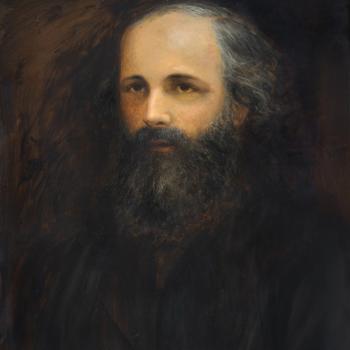
(Wikimedia Commons public domain image)
A nice little interlude from Carlo Rovelli, Reality Is Not What It Seems: The Journey to Quantum Gravity, translated by Simon Carnell and Erica Segre (Penguin, 2017), pages 74-77:
Contrary to his popular image, Albert Einstein was not a great mathematician. Indeed, he struggled with mathematics. In 1943, a nine-year-old girl named Barbara wrote to him about her own difficulties with math, and he responded “Don’t worry about experiencing difficulties with maths,* I can assure you that my own problems are even more serious!” And he wasn’t entirely joking. Others who were more mathematically gifted, such as his friend Marcel Grossman, often had to help him out.
“It was his intuition as a physicist,” says Carlo Rovelli, “that was prodigious” (74).
During the last year of his thinking about what would become his general theory of relativity, Einstein found himself in competition with David Hilbert, who is generally reckoned among the greatest mathematicians of all time. Having attended a lecture by Einstein in the north German university city of Göttingen,
Hilbert immediately understood that Einstein was in the process of making a major discovery, grasped the idea and tried to overtake Einstein and be the first to write the correct equations of the new theory Einstein was slowly building. The sprint to the finish line between the two giants was a nail-biting affair, eventually decided by a matter of just a few days. Einstein, in Berlin, ended up giving a public lecture almost every week, each time presenting a different equation, anxious that Hilbert would not get to the solution before him. The equation was incorrect every time. Until, that is, by a hair’s breadth — just marginally ahead of Hilbert — Einstein found the right one. He had won the race.
Hilbert, a gentleman, never questioned Einstein’s victory, even though he was working on very similar equations at the time. (75)**
At the time, the University of Göttingen, where Hilbert was on the faculty (and a place that I first visited during my mission to Switzerland — thereby hangs a tale! — with all of the awe appropriate to its eminence in the history of physics and mathematics), was the seat of the most important school of geometry in the world. And what Einstein needed in order to formulate his theory was a grasp of geometry in four dimensions. Hilbert later reminisced that “Any youngster on the streets of Göttingen understands geometry in four dimensions better than Einstein. And yet, it was Einstein who completed the task” (cited on page 75). Carlo Rovelli, himself a distinguished theoretical physicist, reflects on the reason for Einstein’s victory, and for his scientific greatness:
Why? Because Einstein had a unique capacity to imagine how the world might be constructed, to ‘see’ it in his mind. The equations, for him, came afterwards; they were the language with which to make concrete his visions of reality. For Einstein, the theory of general relativity is not a collection of equations; it is a mental image of the world arduously translated into equations. (75-76)
David Hilbert, too, placed a high value on imagination. The Wikipedia entry on him reports that, when he was told that one of this students had dropped the study of mathematics in order to concentrate on writing poetry, Hilbert responded “Good. He did not have enough imagination to become a mathematician.”
* I’m guessing that the translators are British. The British say maths (and trades unions and drugs policy) where Americans would say math (and trade unions and drug policy). How do people in Australia and New Zealand handle these terms? I don’t know. Maybe they’ll tell us.
** I’m reminded of the “competition” between Charles Darwin and Alfred Russel Wallace, whom Darwin barely beat out with his publication of On the Origin of Species in 1859. Darwin is esteemed as one of the titans in human intellectual history; for most non-specialists, Wallace is barely a footnote.












